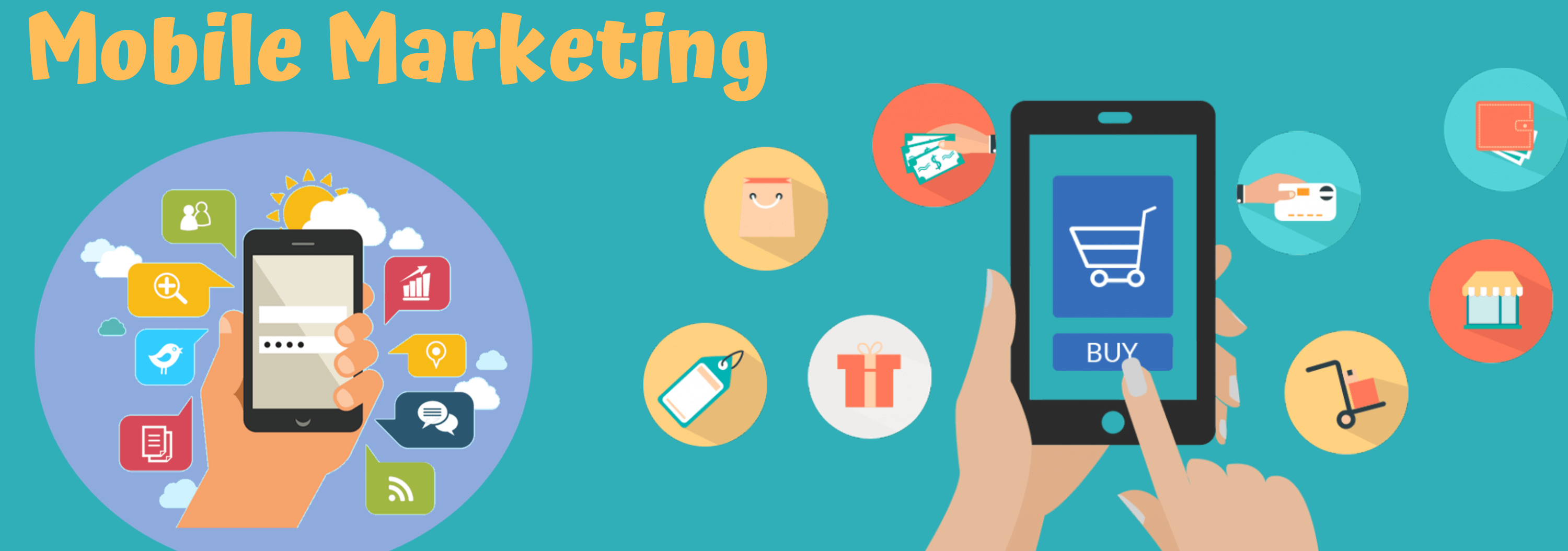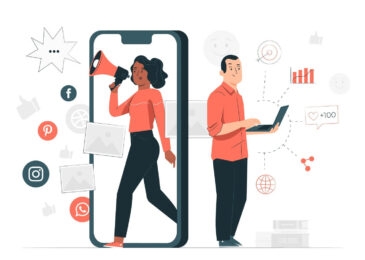How AR will Enhance Mobile Marketing in 2020 to Improve UX?
How AR will Enhance Mobile Marketing in 2020 to Improve UX?
With the rapid improvement of mobile technologies and User Experience design, mobile apps are increasingly becoming great tools for small business brands to reach out to the target audience. While attractive user interface and smooth user experience are key to the mobile app design revolution and marketing success through apps, Augmented Reality (AR) can play a vital role in enhancing the user experience and marketing output of apps.
In the recent past, we have seen AR be incorporated into business solutions by mobile app developers to fulfill various marketing objectives ranging from instant customer engagement to faster business conversion. Across multiple use cases, AR helped mobile apps to deliver better user experience and help to reach out to the target audience and convert business.
Here we explain some of the key ways AR-based mobile apps can help user experience and steady business conversion. Here we will explain the key benefits of AR for mobile marketing.
Key Benefits of Using AR for Mobile Marketing –
Augmented reality is basically about extending the sense of reality through a virtual presentation of reality. By doing so, augmented reality also allows us to bring together the virtual and real together for a closer and better consumption of content. So, this offers a revolutionary concept of representing a reality that breaks apart the division between virtual and real.
There are many real-life examples of using augmented reality in real-life situations. In the retail stores, you can walk in, get closer to a product, scan it with your mobile app, and instantly get all the product information and personalized promotional offer for the product. This is one way of bringing the real to the virtual. This can also happen the other way round.
By using a drag and drop 3D visual creator, you can shape your idea of decorating an interior into reality. Now, by presenting this visual to an interior design service provider, you can book the service with precise guidelines regarding the decor service.
Also Read: How Artificial Intelligence AI is used in different industries?
Let us now explain the key benefits of using AR-based mobile experience for marketing gain.
Customer Experience –
Superb customer experience enhanced by the real-life environment is the most significant advantage of AR-based mobile apps for marketing. Thanks to AR customers without leaving their homes can try products, evaluate their size and other attributes before deciding to purchase.
Enhanced Consumer Engagement –
When you can engage with the AR-based presentation of the products, you stay longer in an app and browser more. Spending more time with product browsing and staying longer by trying different products and options through virtual fitting measures and tools is a key benefit of AR-based mobile apps.
Location-Based Customer Targeting –
It is not uncommon for mobile app users to receive notifications to get notification messages from restaurants and retail shops when they pass nearby. Well, this geo-targeting or location-based customer targeting us equally beneficial for the marketers and from the perspective of user experience as users often find delighted to get offers from a store that they come across accidentally.
AR Based Mobile Marketing: Use Cases –
AR has already been used as a consistent technology for mobile apps across the spectrum. There are several use cases that, in this respect, calls to our mind. All such use cases of AR geared for better user experience and marketing output let us explain a few of these use cases.
Virtual Fitting Experience before Purchase –
Every customer prefers shopping garments and wearable that fit their preferred style, size, and other attributes of choice. AR-based virtual trial rooms and fitting experience have brought revolution to this. AR-based fitting experience and trial rooms helped customers trying products before they purchase, and this gave more credibility to the brand.
AR Based Media Streaming –
AR has also been used by countless media streaming apps to present the content with more signs of credibility and trust. AR-based media streaming apps revolutionized the way media content is processed, curated, customized, and presented to the audience. There are so many media houses that are running fully equipped media editing studios to deliver content that is largely produced indoors. The recent buzz around fake or fabricated news and video has been a negative outcome of this trend.
AR Based Touring Experience –
Augmented reality capable of adding digital attributes on top of the physical locations and products can be used to provide a lot more product and service-oriented information across different layers. For example, when you are booking a tour from a travel company, through high-quality 3D visuals and AR, the company can produce immersive videos vividly showcasing the tour experience.
Similarly, a restaurant or a travel attraction can be viewed sitting at home with immersive audiovisual experience. Such virtual touring expertise will help customers deciding about a product or service better.
AR for Real Estate and Interior Decor Marketing –
Last but not the least of the AR application use cases that can be referred to is the AR-based real estate and interior decor marketing apps. AR-powered real estate and interior decor marketing apps help you to put your modern furniture and furnishings into a premise and evaluate the look and feel on your mobile screen. A real estate app can help the buyers to walk through the rooms visually and see 360-degree visuals around a property just through the mobile screen.
Conclusion –
Countless apps already experience the impact of AR in enhancing the user experience and delivering marketing benefits across the niches. In the years to come, we can see more apps to utilize the potential of AR for marketing gains. We can also see several traditional business niches to embrace AR for mobile app marketing.
Author Bio –
Nathan McKinley is Business Development Manager at Cerdonis Technologies LLC – mobile app development company serving and developing AI based AR mobile/web app for small businesses to enterprise. He has spent a half-decade in the marketing world as a business developer for various tech industries and due to this, he has accumulated knowledge of updates of tech and its vulnerable applications that he’s now sharing through his writing skills as core expertise.
Also Read: How Blockchain Technology is helping Mobile App Developers?






